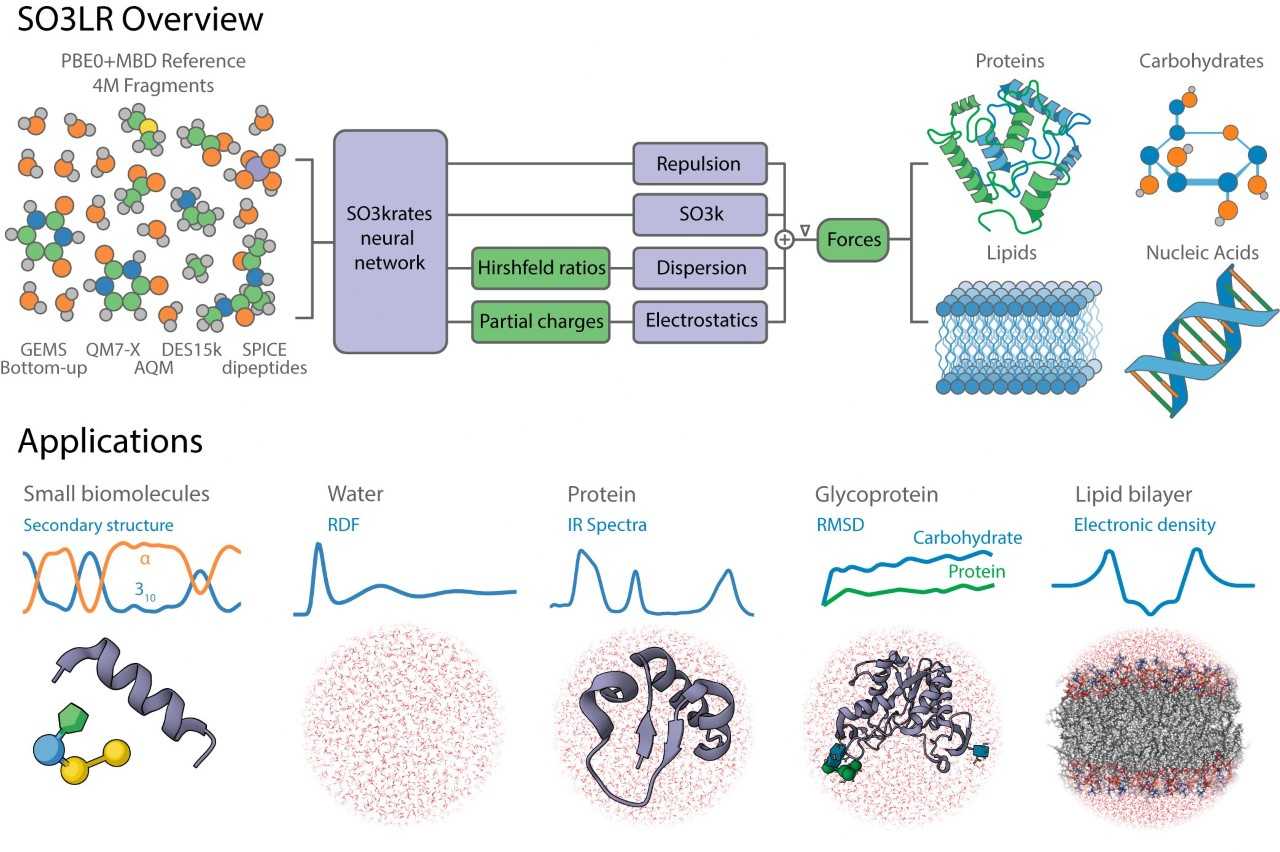Molecular Simulations with Pretrained Neural Nets & Universal Pairwise Force Fields
by Adil Kabylda (University of Luxembourg)

Topic: Molecular Simulations with a Pretrained Neural Network and Universal Pairwise Force Fields
Code: general-molecular-simulations/so3lr
Abstract:
Machine Learning Force Fields (MLFFs) promise to enable general molecular simulations that can simultaneously achieve efficiency, accuracy, transferability, and scalability for diverse molecules, materials, and hybrid interfaces. A key step toward this goal has been made with the GEMS approach to biomolecular dynamics. This work introduces the SO3LR method that integrates the fast and stable SO3krates neural network for semi-local interactions with universal pairwise force fields designed for short-range repulsion, long-range electrostatics, and dispersion interactions. SO3LR is trained on a diverse set of 4 million neutral and charged molecular complexes computed at the PBE0+MBD level of quantum mechanics, ensuring a comprehensive coverage of covalent and non-covalent interactions. Our approach is characterized by computational and data efficiency, scalability to 200 thousand atoms on a single GPU, and reasonable to high accuracy across the chemical space of organic (bio)molecules. SO3LR is applied to study units of four major biomolecule types, polypeptide folding, and nanosecond dynamics of larger systems such as a protein, a glycoprotein, and a lipid bilayer, all in explicit solvent. Finally, we discuss the future challenges toward truly general molecular simulations by combining MLFFs with traditional atomistic models.
| Topic | Molecular Simulations with Pretrained Neural Nets & Universal Pairwise Force Fields |
| Slides | TBA |
| When | 28.10.2024, 15:00 - 16:15 (CET) |
| Where | https://us02web.zoom.us/j/85216309906?pwd=cVB0SjNDR2tYOGhIT0xqaGZ2TzlKUT09 |
| Video Recording | TBA |
Speaker(s):
Adil Kabylda is a Ph.D. researcher in the Theoretical Chemical Physics group under the supervision of Prof. Alexandre Tkatchenko at the University of Luxembourg. He earned his B.Sc. and M.Sc. degrees in Chemistry from Moscow State University in 2021. His research focuses on extending the applicability of Machine Learning Force Fields to larger (bio)molecules, with particular emphasis on accurately describing long-range interactions.